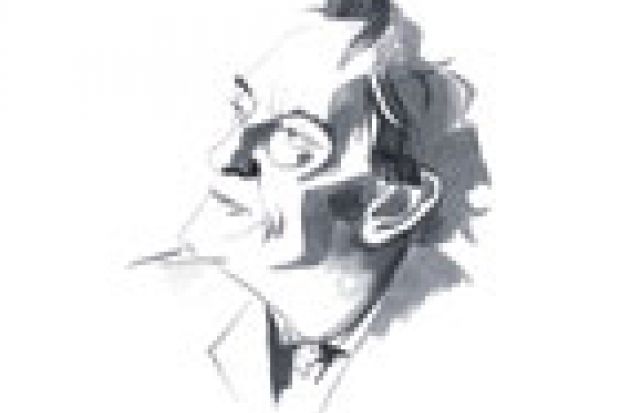I am struggling to see where the blame lies in the case of Steven Salaita. This distinguished professor, of Palestinian provenance, had a creditable record as a scholar and a high reputation as a teacher at Virginia Tech University. He accepted a new job at a place with a higher research profile, resigned his post and sold his house. But his expletive-larded, invective-charged tweets about Israel alarmed his prospective employer, colleagues, students, donors and alumni at the flagship campus of University of Illinois at Urbana-Champaign, and its chancellor, Phyllis Wise, in effect withdrew the job offer.
Dr Salaita is now without an income and a home, and has no possibility of redress, it seems, short of going to law, or relying on a boycott campaign among his sympathisers to disrupt the university. Technically, his case hinges on whether he had a contract. If so, the university acted unlawfully. Honour is a higher value than law, and whatever the formal deficiencies of an agreement, no party should abrogate it without fair dealing and mutual consent; and it is tempting always to side with an apparently drowning victim against a buoyant, blowing leviathan; but we do not yet know the state of negotiations in Dr Salaita’s case at the moment when the university halted them.
Professor Wise was right, I think, to accuse Dr Salaita of using uncivil language. His tweets said, inter alia, “Fuck you, Israel”, “The [Israel Defense Forces] spokesperson is a lying motherfucker”, “If you’re defending Israel right now you’re an awful human being” and “If Netanyahu appeared on TV wearing a necklace made from the teeth of Palestinian children, would anyone be surprised?” It might be helpful to include civility as a qualification for academic appointments in future, but one man’s incivility is another’s candour, and no credible accusations have so far surfaced of impropriety in Dr Salaita’s professional work.
In any traditional medium he would never have confided his expletives to writing, or recorded his bêtises or given his enemies so much copy
Accusations of bad faith on both sides have clouded the issues. I am inclined, in default of evidence, always provisionally to credit self-exculpations. So let us accept that Professor Wise is being truthful when she assures us that her objections are not to Dr Salaita’s opinions or his right to express them, and that she was uninfluenced by donors’ threats to withdraw funding or by political pressure. Let us accept the assertion of Christopher Kennedy, the chairman of the board of trustees, that the university’s objection was to Dr Salaita’s “disrespectful and demeaning speech that promotes malice”. And let us agree to believe Dr Salaita when he asserts that he is friendly and welcoming to Jewish individuals and pro-Israeli views in class, and that the repulsive tone of some of his tweets is the unrepresentative result of unreflective anger.
If both parties in the case are innocent, who is to blame for his predicament? I think we must blame the devisers of Twitter, a medium that seems to fillet common sense from tweeters and exempt readers from sanity. I have never understood its appeal. When I first heard about it, I experienced a rare moment of optimism. Here at last, I thought, is a forum that will compel users to be concise. I expected a new age of aphorisms, adorned by prose as witty as Wilde’s and as epigrammatic as that of Tacitus. I thought it might introduce otherwise slovenly writers to discipline like the haiku’s or the clerihew’s. Instead - to judge from the fragments that reach me through the filters of other, more reliable and more readable media - Twitterdom is a realm of the irrational, in which drivel pullulates, rants resound and trivia thrive. It seems the perfect destination for anyone who wants to read banalities from the Queen, truisms from the Pope and restaurant recommendations from Stephen Fry.
Instead of constraining contributors to be sparing with utterances and succinct with words, it seems to encourage diarrhoeic loquacity. Addicts recur to it repeatedly - addicted scribblers with nothing to say, and addicted perusers to nothing worth reading. Apart from my wife and children, I know no one who treats it with the disdain it deserves. Reputable academics and solemn statesmen defer to it. My students waste their leisure on it. Journalists, it seems, are compelled to make offerings to it and take gleanings from it. Celebrities too lazy or too fastidious to tweet employ dreary, deprived amanuenses to do it for them. What starts as an obligation becomes a compulsion, and tweeters must feed the monster with ever less considered little shovelfuls of verbiage.
Dr Salaita is one of the victims. In any traditional medium – book, article, belle-lettre or postcard – he would never have confided his expletives to writing, or recorded his bêtises, or given his enemies so much copy. He would have thought first. Even a blog, despite the absence of normal constraints and the tendency of bloggers to bore on unrestrainedly, is more likely to proceed from a careful, vigilant mind. Dr Salaita, like most twitterers, seems to have been induced to treat his thoughts like coffee powder, instantly infused, hastily splashed. The stains remained, visible on a million screens.
That, I suppose, is why voyeurs love the medium: you can catch contributors off guard, in moments of intimate, indelicate and sometimes indecent idiocy. That accounts for the readers. But why do the twitterers themselves collaborate in their own exposure and, in Dr Salaita’s case, their own undoing?





